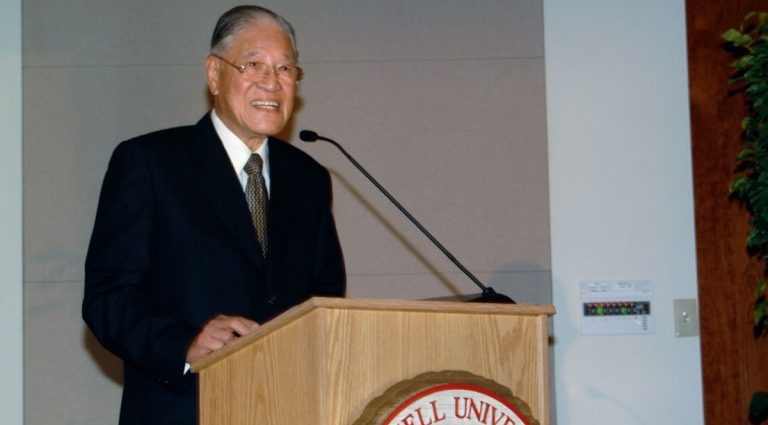The Chinese government is seriously concerned by a potential meeting between Taiwanese President Tsai Ing-wen and United States House Speaker Kevin McCarthy.
McCarthy, who originally planned to visit Taipei, said Tuesday that he will meet Tsai in the US this year. He stressed that such an arrangement does not preclude his trip to Taiwan in the future.
Taiwan’s presidential office said Wednesday it is working on an overseas visit by Tsai and will announce the plan when it is confirmed.
China’s Ministry of Foreign Affairs said it has expressed diplomatic discontent to the US and urged Washington to clarify whether there will be a Tsai-McCarthy meeting.
“China resolutely opposes any form of official exchanges between the US and Taiwan,” Mao Ning, a foreign ministry spokesperson, said on Wednesday.
“No one should underestimate the firm determination of the Chinese government and the people to defend sovereignty and territorial integrity,” she added.
Mao also complained that Taiwan independence forces are threatening the peace and stability of the Taiwan Strait.
The Financial Times reported on Monday that Tsai may meet McCarthy when she stops over in the US on her way to visit several Central American countries next month. Last month, media reports said Tsai might travel to the US in May or June to give a speech at Cornell University, a repeat of what former Taiwanese President Lee Teng-hui did in 1995.

Both studied at the upstate New York university.
To retaliate for Lee’s US visit, the People’s Liberation Army (PLA) launched four ballistic missiles at Taiwan’s waters in July 1995 and one more in March 1996. But only the first missile hit the target as the US turned off the GPS that China was using at the time, Chinese media reported.
The incident prompted China to accelerate the development of its satellite navigation system, namely BeiDou. In July 2020, Chinese President Xi Jinping announced that the third-generation BeiDou system’s setup had been completed.
Taiwan’s Defence Minister Chiu Kuo-cheng said Monday the Taiwanese army will open fire if the PLA enters areas within 12 nautical miles of the island’s coastlines.
“It wouldn’t be the first time that a Taiwanese leader visited the US and the PLA responded by launching military exercises,” writes Tian Liu, a mainland-based military columnist. “If Tsai insists on going, the mainland will give a much stronger response.”
Tian said it is questionable whether the Taiwan army can identify the PLA’s stealth aircraft J-20 – which can evade radar – even if it enters the island’s 12 nautical-mile airspace.
“Mainland China already has the strength to achieve reunification with Taiwan,” says a Hubei-based columnist. “What’s more important now is how China can grab the opportunity to push forward the peaceful reunification.”
“More and more Taiwanese people are fed up with the Democratic Progressive Party (DPP), which keeps pushing forward Taiwan independence,” he adds. “The DPP sacrifices Taiwan’s benefits to get close to the US, making Taiwanese also feel disgusted about the US.”
He says when Taiwan independence loses its supporters on the island, it will be time for the mainland to take action to push forward its reunification plan.
Last August, the PLA launched a three-day military exercise near Taiwan in a threatening response to the United States House of Representatives’ then-Speaker Nancy Pelosi’s visit to the island.
In November, the DPP faced a setback at local elections as many voters suffered from high inflation. Since then, Beijing has lowered its tone on Taiwan matters and has said it will keep connecting with those who oppose Taiwan’s independence and try to reunify with Taiwan peacefully.
Johnny Chiang Chi-chen, a Legislative Yuan member and a rising star in Kuomintang, the largest opposition party in Taiwan, said last month that the island welcomes all international friends but it does not want to see rising tensions in the Taiwan Strait. Chiang said the current administration should be replaced if the Taiwan Strait becomes unstable.
“The two sides of the Taiwan Strait belong to one common family, which is called China,” China’s Foreign Minister Qin Gang said Tuesday in a media briefing on the sideline of the annual meeting of the National People’s Congress. “As brothers and sisters, we will continue to work with the greatest sincerity and utmost efforts to pursue peaceful reunification.”
“Meanwhile, we reserve the option of taking all necessary measures,” he added.
Qin said the mishandling of the Taiwan question will shake the very foundation of China-US relations. He said the US should stop trying to contain China by exploiting the Taiwan question and unequivocally oppose and forestall Taiwan’s independence if it truly expects a peaceful Taiwan Strait.
US-China tensions have increased since Tsai won the presidential election in Taiwan in 2016. In 2018, Tsai stepped down from the DPP chief position after the party lost seats at local elections.
At that time, Beijing believed that it would be able to resume dialogue with Taipei if Kuomintang’s Daniel Han would win the presidential election in 2000. However, Tsai renewed her term as Taiwanese voters were stunned by how Beijing suppressed the anti-extradition protests in Hong Kong in 2019. Tsai also resumed her role as DPP chief in 2020.
Read: Voters to Tsai: get your economic house in order by 2024
Follow Jeff Pao on Twitter at @jeffpao3

